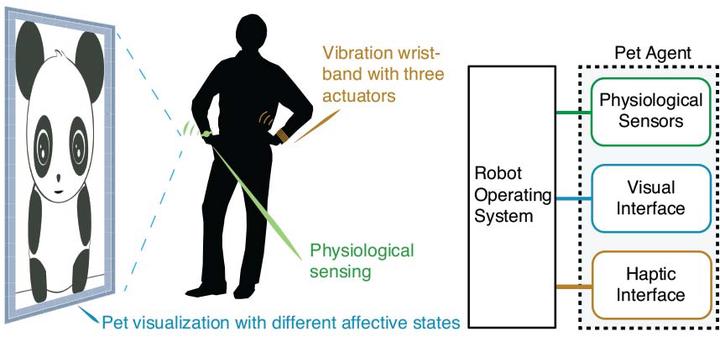Robot mirroring: Promoting Empathy with an Artificial Agent by Reflecting the User's Physiological Affective States

Abstract
Self-tracking aims to increase awareness, decrease undesired behaviors, and ultimately lead towards a healthier lifestyle. However, inappropriate communication of self-tracking results might cause the opposite effect. Subtle self-tracking feedback is an alternative that can be provided with the aid of an artificial agent representing the self. Hence, we propose a wearable pet that reflects the user’s affective states through visual and haptic feedback. By eliciting empathy and fostering helping behaviors towards it, users would indirectly help themselves without explicit feedback. A wearable prototype was built, and three user studies performed to evaluate the appropriateness of the proposed affective representations. Visual representations using facial and body cues were clear for valence and less clear for arousal. Haptic interoceptive patterns emulating heart-rate levels matched the desired feedback urgency levels with a saturation frequency. The integrated visuo-haptic representations matched to participants own affective experience. From the results, we derived three design guidelines for future robot mirroring wearable systems: physical embodiment, interoceptive feedback, and customization.